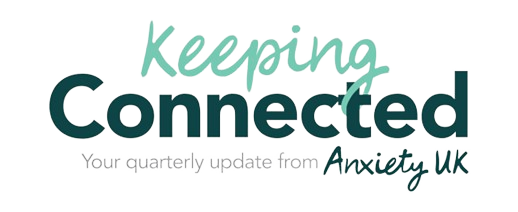Opening up about anxiety: what I’ve learnt about vulnerability
By Jen Catling
Telling someone you love that you experience anxiety can be daunting. The chances are if you’re already prone to feeling anxious, you’ll also be feeling anxious about opening up about this for the first time – especially those who matter most to us, as we care more about their opinions and how opening up might affect our relationship with them. With anxiety, can come the tendency to fear the worst (known at ‘catastrophising’), to overthink and to avoid situations where we are vulnerable to what we fear. All of these tendencies can be natural; however they can also be responsible for keeping us stuck in patterns or cycles of behaviour or thinking that do not serve us.
Tip 1: Face your fears with self-acceptance and self-compassion
For me, the most daunting prospect was that my anxiety wouldn’t be taken seriously or would be seen as an excuse somehow. This is because, up until a few years ago, I didn’t have friends or family who showed vulnerability freely. There seemed to be an unspoken rule that vulnerability meant weakness and I think this comes from a general societal culture that provides few opportunities to learn to express our emotions healthily. So, people can often really struggle to know what to do in response to the raw, honest truth that comes with saying “I’m not okay”. I really welcome the messaging that seems to be becoming more prevalent in society these days that “it’s okay not to be okay”, particularly within younger society.
Tip 2: Be real with yourself in order to be real with others
A big turning point for me was when I realised I had health anxiety, during the covid pandemic. I have always had anxiety-related difficulties, but something about there being a highly contagious, potentially deadly virus circulating that suddenly made my anxiety an unmanageable problem (no surprise!) I eventually began having therapy (Cognitive Behavioural Therapy -CBT) which helped me to challenge some of my avoidance and ‘safety’ behaviours that I had in place to avoid my fear, but one of the most powerful benefits was to challenge my beliefs around vulnerability. This is because emotional vulnerability was deeply connected to my fear of being unwell. I accepted, on a deeper level than I had ever done, that vulnerability is not only an essential part of life, but that it also enriches my life by letting me be the more authentic version of myself and having the power to bring me closer to those who matter to me.
Tip 3: Remember it’s the beginning of a long journey
I can say from experience that opening up to loved ones is easier said than done. At first, there was little response to what I had shared. This felt confusing and frustrating as it felt like such a big deal to me. However, I realised that my fear of vulnerability was shared by my family members (again, no big surprise!) and I had to remind myself that they hadn’t had the benefit of the therapy. It is taking time, but in the absence of mental health role models growing up, I chose to become a role model myself. Over the last few years I have been opening up more and more about my anxiety difficulties. It’s a long, slow, journey but regardless of my family member’s response (or lack of response sometimes) I am overcoming my fear of vulnerability. I also feel that over time it is improving my relationships with family and friends because I am learning to be a more whole and authentic version of myself and they are too. My advice would be to have patience and take it one small step at a time.
‘Jen is a children and young people’s mental health practitioner and one of Anxiety UK’s anxiety support group facilitators. She is passionate about mental health empowerment as she has life-long experience of mental health difficulties herself.’
The views expressed by the contributor are not necessarily those of Anxiety UK, nor can we guarantee the accuracy of the information provided. If you would like to write a blog for AUK please email [email protected] for more information.









